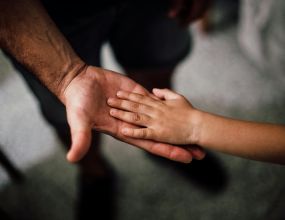
Due to the lack of official registration, many Roma children in Azerbaijan remain excluded from health, education, and other services. The future of these children is in question due to the irresponsibility of parents and the state.
When discussing the issue of the Roman population in Azerbaijan, which is not recognized as an ethnic minority, whose legal status is limited to having an Azerbaijani ID card, it is crucial to address the impact on children's lives. The irresponsibility of the state, society and parents endangers the future of Roma children.
The main problem is the lack of official registration of Roma people. Roma who do not want to be registered and do not have an identity card are excluded from the services of public institutions, especially health care. This results in Roma children being unable to benefit from essential services and necessary healthcare.
Another significant problem is the exclusion of Roma children from education. While in Azerbaijan, most of the ethnic groups are taught their mother tongue, this is not the case for the Roma community. Consequently, the educational level of the Roma community is lower compared to other ethnic groups, and they do not progress beyond primary and secondary education.
One more reason is that in many cases Roma children are discriminated against by being called "gypsies". These marginalized children, excluded from being part of society, are reluctant to establish connections with children from other families and tend to associate more with those within their own community. This contributes to their antisocial behavior.
However, it is undeniable that Roma parents also share responsibility for these issues. Cases of children being deprived of education, forced into early marriages, begging, and involvement in prostitution by their parents are observed. Approximately 90 percent of children subjected to labor exploitation on the streets are Roma children. As a result of the lack of education received from their parents, cases of mental retardation are also observed in Roma children.
Here, the biggest responsibility falls on the state because Roma children are not actively enrolled in compulsory education. The Ministry of Education, by acknowledging these ideas, cites the lack of registration and identity cards for Roma children as the reason.
For a period in the early 2000s, there was a large group of street children, predominantly consisting of Roma children. They lacked proper documentation. However, currently, many Roma children have identity cards due to receiving various social benefits and child allowances. Despite being a significant ethnic group in Azerbaijan, these individuals, who lack representation in organizations and society, must be provided with education, especially for the future of Roma children.
Fakhraddin Zeynalov, the responsible secretary of the Commission for the Protection of the Rights and Employment of Minors at the Executive Power of Yevlakh City in Azerbaijan, notes that in Yevlakh, where Roma communities are more concentrated, it is rare for Roma children to receive education, and the majority among them belong to the settled Roma group. Roma children typically receive education up to the 7th grade, with the majority being excluded from schooling due to engaging in begging activities.
Kamala Agazadeh, the chairwoman of the Azerbaijan Children's Public Union and founder of the Child Shelter-Reintegration Center, notes that Roma children brought to the shelter report being forced to beg by their own parents. In this shelter, children aged 9 months to 18 years are protected, and almost all of them come from problematic families. Here, minors are sent for medical examinations, as well as preventive measures are taken to prevent their harmful habits, also psychological and legal assistance is provided. However, keeping children who are accustomed to freedom and street life in the shelter poses difficulties. Additionally, providing legal assistance is challenging due to the lack of documentation for the majority of them.
Mehriban Zeynalova, the president of the "Təmiz Dünya" ("Clean World") Women's Aid Society, states that Roma families often turn to involving their children in begging due to difficult living conditions. Kamala Agazadeh, who has been working in this field since 2000, also says that when the begging children are detained by the police, they refuse to testify against their parents. For this reason, this kind of child labor cannot be estimated. In many cases, in the anti-trafficking and international reports, forcing children from the Romany group to beg is considered as forced labor, but in Azerbaijani legislation, this is considered as an administrative punishment as living a miserable life together with the parent, and the parent pays a fine of 100 manats. The specialist sees the way out of the situation in the implementation of the guardianship and protection (patronage?) commissions under the executive authorities, and in achieving the active activity of the social work institute.
Roma people, up to the age of 40, has almost no education. Roma, not ready for change, does not hope that their children's future will be different. Moreover, the majority of the local population is not ready to accept them. As a society, we should take a mutual responsibility for the future of Roma children, understanding the need to step forward, and raise our children in the spirit of ethnic tolerance.